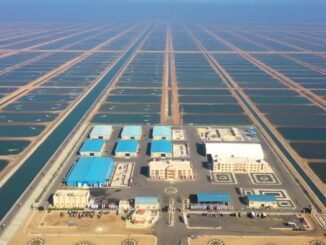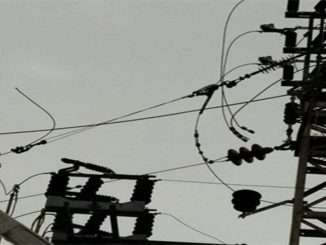
Following Egypt’s vote on the Russian draft resolution in the United Nations Security Council, Saudi Arabia and Egypt have started an unofficial war of words on media and social networking sites. However, Egyptians and Saudi officials deny any political disagreement between the two countries.
This cold war ـ as described by Daily News Egypt has begun soon after Saudi Oil Company ‘Aramco’ informed Egypt that it “Would Halt The Supply Of Oil Products”, although it reportedly later resumed oil supplies to Cairo, saying that the halting decision was made due to a commercial issue, not a political one.
In fact, there has been no official word from Saudi Arabia on the abrupt halt of shipments, a decision that appears linked to a public spat between the two allies over Syria, said The Washington Post.
According to the Egyptian media, the crisis between Egypt and Saudi Arabia has increased because of the Egyptian official position towards the situation in Syria”
Amid the tension, Saudi Arabia’s ambassador to Egypt Ahmed Al-Qattan left Cairo on Wednesday, reportedly heading to Riyadh in a three-day visit to discuss the Egyptian-Saudi bilateral relations.
It is noteworthy that in the midst of this crisis, Abdallah Al Sinawi, an Egyptian journalist, has revealed that it has been a conflict of attitudes between Egypt and Saudi Arabia. “There is always talk of a strategic alliance between Cairo and Riyadh. This is not true,” Al Sinawi told AFP.
Beside Syria, other issues divide Cairo and Riyadh. Saudi Arabia had expected Egypt to send ground troops as part of the Saudi-led coalition fighting in Yemen, something Cairo has failed to do.
The Saudis have also been angered by meetings between Egyptian officials and representatives of Yemen’s Iran-backed Shiite rebels. Egypt has also maintained channels of communication with Tehran and enjoys close relations with Iraq’s Shiite-led, Iranian-backed government, another Saudi adversary.
At the same time, Saudi Arabia is moving to the reinforcement of ties with Turkey and Qatar; the two countries whose relations with Egypt are fraught with animosity.
War of words
Several accusations and criticisms have been swapped through the media platforms of the two countries, and concurrently with the heavy criticisms from the Egyptian side, the Saudi unofficial figures reacted and criticized the Egyptian regime in the same way.
Washington-based Saudi lobbyist Salman Al-Ansari condemned Egypt’s decision by posting to Twitter, saying, “Egypt’s voting makes me rather suspicious of its motherhood to the Arabs and the world”.
On the other hand, Ibrahim Eissa, an Egyptian journalist, said that Saudi Arabia cannot bear the leading and independent stance that Egypt has taken.
Also, Pro-regime TV Anchor Ahmed Moussa spoke in a rather defensive tone and said that Egypt does not need anyone, and its decisions are sovereign and independent.
Chief editor of Youm7 newspaper, Khaled Salah, suggested that Egyptians should do Hajj and Umrah – both are religious duties – only once as a measure to save $6bn from going to Saudi Arabia. He added that he is “sad” that there is a disagreement between Egypt and Saudi Arabia.
From his side, Mohamed Elosaimi wrote in “Okaz” newspaper that “If some media outlets in Egypt believe that Saudi politics has no principles, we – in Saudi Arabia and the Gulf states – know for sure that our support to our brothers in Egypt was true and honest.”
He also added, “Despite the severity of the recent pain, there is still a hope that Egypt is aware of the consequences of quitting its alliance with the Gulf states – in favor of other alliances – on its national security and on the Arab national security.”
Jamal Khashoggi, a Saudi journalist, has also criticized an article published in El-Watan, an Egyptian newspaper, titled: “Saudi Arabia pays for hosting terrorism”, saying: “It is insolence from a press that does not breathe without directives; and then someone comes out saying that the article does not reflect the official point of view”.
Following Twitter, Saudi bloggers have launched a hashtag in Arabic saying: “Stop_Oil_Supplies_To_Egypt” to show their anger toward the Egyptian position and the criticisms of the journalists in Egypt.
Khaled Elmehawesh, a Saudi writer who is followed by 100,000 persons on Twitter, criticized the Egyptian media, particularly “Youm7” newspaper, saying – on his official Twitter account: “When hunger is over, ‘barking’ begins”
Elmehawesh also said “Thinking that the Egyptian media are attacking us without directives, is not true; it is a wave of blackmailing.”
Furthermore, the Saudi writer said clearly that Egypt has joined the alliance led by the Shi’ite Iran, the kidnapped Iraq, the Assad’s Syria, and the Lebanese party (Hezbollah) state.



